Photographs: Rediff Archives Harnoor Channi Tiwary
Harnoor Channi Tiwary shares with us her experience of moving into the country's capital.
Often called Dilwalon ki Dilli, the city of Delhi greets you like a long lost friend with open arms. It's a city where history converses with modern infrastructure, where you can get a plate of lipsmacking gol gappas (something like puchkas and pani puri in other cities) for Rs 10 from a roadside stall or Rs 400 at a fine dining restaurant (with some vodka added in too), and where the 'BHK'-system can sound redundant: the houses sprawl and spill over with gardens and backyards!
Housing and Cost of Living
The first thing you will love about the city is the housing options. Depending on your workplace/college location, and your budget, you can select a locality convenient to you.
Says Neha Deva who moved here two years ago from London, "The best way to house hunt in Delhi is to pick up the weekend classified section and spend a day checking out potential options. You can even choose to give the ads by agents a miss and save money worth a month's rent (which is the commission that they charge)."
Unlike in Mumbai and many other cities, you don't have to pay hefty deposits to rent a house here. The deposit is usually between 15-30 days.
Houses in Delhi/NCR give you a great value for money. Students usually rent an apartment with a few friends near college.
These could be as affordable as Rs 8,000 for a 2-bedroom flat, which can be split between themselves.
Cost of living in Delhi
Image: In about Rs 20k, you can expect a luxury flat in the glittering suburb of GurgaonPhotographs: Dinesh Pratap Singh/Creative Commons
One could even take a paying guest option where a nominal rent of Rs 4000 could get you a basic room with shared facilities like a refrigerator, and the option to opt in for tiffin dinner (Rs 30 per head).
Young families can find a lovely 3BHK bungalow in Noida within Rs 20,000.
The same amount will help you get a floor of a house in South Delhi or a 3BHK luxury flat in Gurgaon.
There are options aplenty. North, East and West Delhi are comparatively cheaper than South Delhi.
The cost of living in Delhi is not very low. Running a household, domestic help, grocery shopping, travel, etc, can tug at your purse strings.
But with the rent not cutting a hole in your pocket, your monthly budgets should be easily manageable.
To further help in monthly budgeting, buy your vegetables and fruits from the weekly haat closest to you.
These travelling vegetable markets not only get you fresh produce but you often get the wares at 40-50 per cent lesser than normal stalls.
Local Travel
Image: Delhi Metro has made travelling far simpler for DelhiitesTravelling within the city can be a challenge.
The expanse of the capital coupled with an enormous workforce living here taxes the existing infrastructure. The good news is that this is the perfect time to move here.
With the air conditioned Metro now operational on routes as far away as Noida and Gurgaon, it is a breeze travelling to most parts of the city.
Buses are another option. Find out the bus that plies on your route -- you may have the option of DTC buses or the white chartered buses.
Pick the latter -- they are more comfortable and don't get as crowded as the general public ones.
Tickets are not too expensive for buses (Rs 10 to Rs 20 for most places).
However Rohan Tiwary warns, "Autorickshaws in Delhi tend to overcharge you and they seldom travel by meter. Also, they harass customers wanting to travel short distances. Give them a miss as far as possible."
Or learn to fight them. Travelling by your own vehicle or carpool still remains Delhi's most popular option.
For short distances, some areas have the option of cycle rickshaws.
People in Delhi
Image: In Delhi 6, Abhishek Bachchan plays an NRI who falls in love with the people of DelhiHindi films love to portray Delhiites as affectionate, yet interfering.
Like all cities, this one too has its quirks -- the trick is to understand them.
Neighbours here will probably come up and introduce themselves to you. They will gladly lend you that bowl of sugar or a quick chat session, whichever is the need of the hour!
Vibhinta Verma adds, "People in Delhi may not take to you instantly or you to them, but when they do; you will have made a friend for life.
When I first moved here from Lucknow, I found people too loud and brash. Over time, I have realised that beneath their rough exterior, they are one of the most welcoming people."
On the work front too, Delhi professionals like to interact and deal with one another on a personal level rather than on a clinical professional level. Building cordial inter-personal relationships can help you go a long way here.
Eating out in Delhi
Image: Head to Bengali Market, Quitib Institutional Area or Karol Bagh for yummy street foodThe beauty of Delhi is the plethora of options that it throws at you when you get off work. Options are aplenty for you to hang out with your friends regardless of the time or your budget.
Great low cost snacking options popular amongst youth include keema paranthas in Qutub Institutional Area or Moolchand, Kathi Rolls at Nizam's, chaat and cholle bhature at Bengali Market and dhabbas in Rajendra Nagar and Karol Bagh.
If art, culture and architecture are your scene, you can keep yourself busy with plays at the India Habitat Center (Lodhi Road) or any other theatres, galleries, exhibitions, or just take the hop-on hop-off bus and explore the city's historical heritage.
Nightlife in Delhi usually happens on weekends (Friday to Sunday) with a lot of places now having special events on Wednesday night as well. Coming from Mumbai, the city that never sleeps, Hritik Kant remarks, "I wish the deadline was not so early in Delhi. Getting off work and travelling home means we only get to hit a place earliest by 11 pm, which is already the last order in most pubs!"
Quick getaways
Image: Delhi offers you a lot of getaways options like AgraPhotographs: Rediff Archive
A busy lifestyle makes us forget about investing in ourselves.
Life in Delhi can get quite hectic, which makes it even more important to de-stress occasionally.
One could pay a visit to a spa or get a relaxing massage (Rs 1,000) or even plan a weekend getaway to the many options available like Jaipur, Agra, Sariska, or Shimla.
On a more regular level though, it is important to be active. With rising pollution levels, this becomes critical. Sports are a great way to meet people as well as remain fit.
Take Rasna Arora's advice: "Join a club in your locality for swimming, or just take up jogging in the neighbourhood park. Winter is a great time to join the numerous laughter clubs or yoga groups that spring up spontaneously in colony gardens."
Culture Shock
Image: Delhi's loud culture can be tough to digest initially but it's possible to make it your home tooExpect a serious culture shock when you move to Delhi. The idea is to get comfortable finding your way around the city and the people.
Go out; meet as many people as you can.
Kanika Tiku who moved to Delhi from Jammu suggests, "Initially the city overwhelms you. It is easy to get lost here -- figuratively as well as theoretically. But a few months here, and it's difficult to call any other place home."
Moving from another large city to Delhi poses its own set of challenges -- like the extreme weather (how to beat the scorching heat and the freezing winters), the traffic jams (like all metros, one must know what time the traffic hour is worst for which direction), and the aggression on the road ("Why does everyone want to pick a fight with you on the road"? laments Hritik, insisting that Mumbai drivers are much more patient).
But all it takes is some mental preparation, making good friends, and this new city will be home!

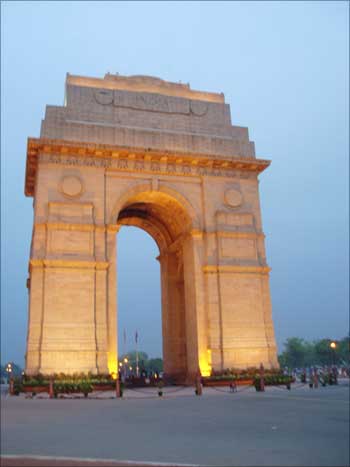
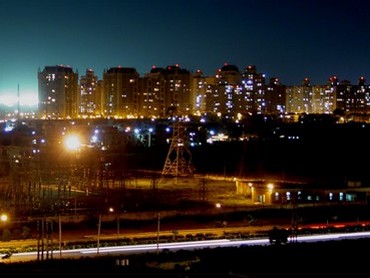
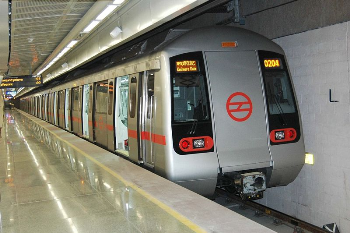
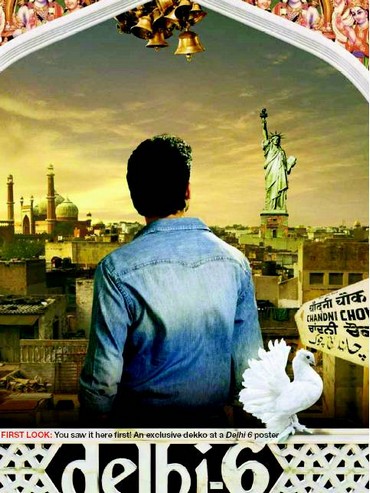
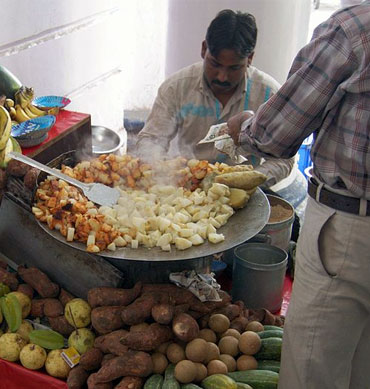
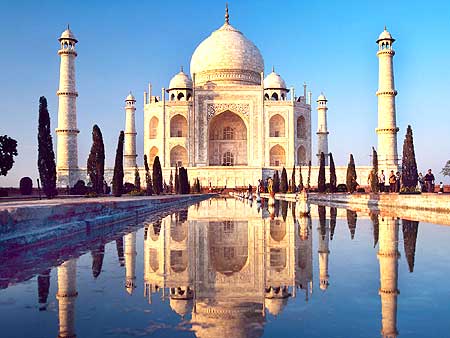
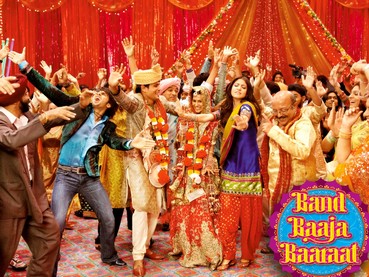
Comment
article